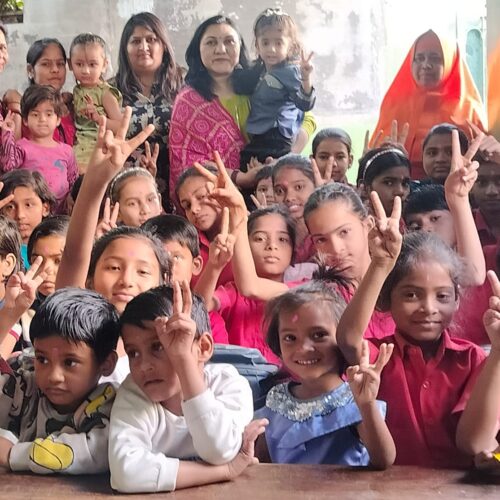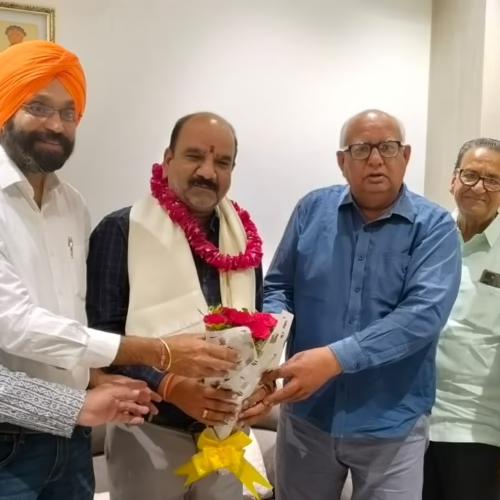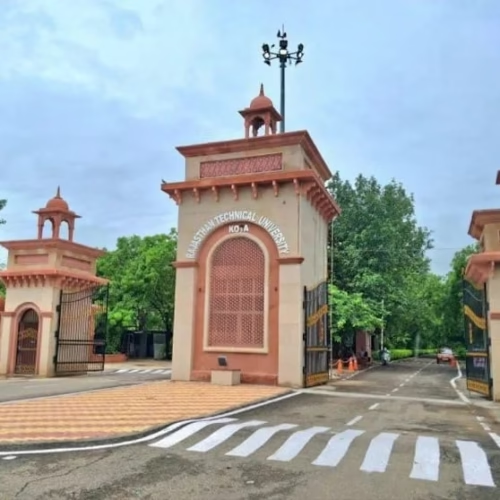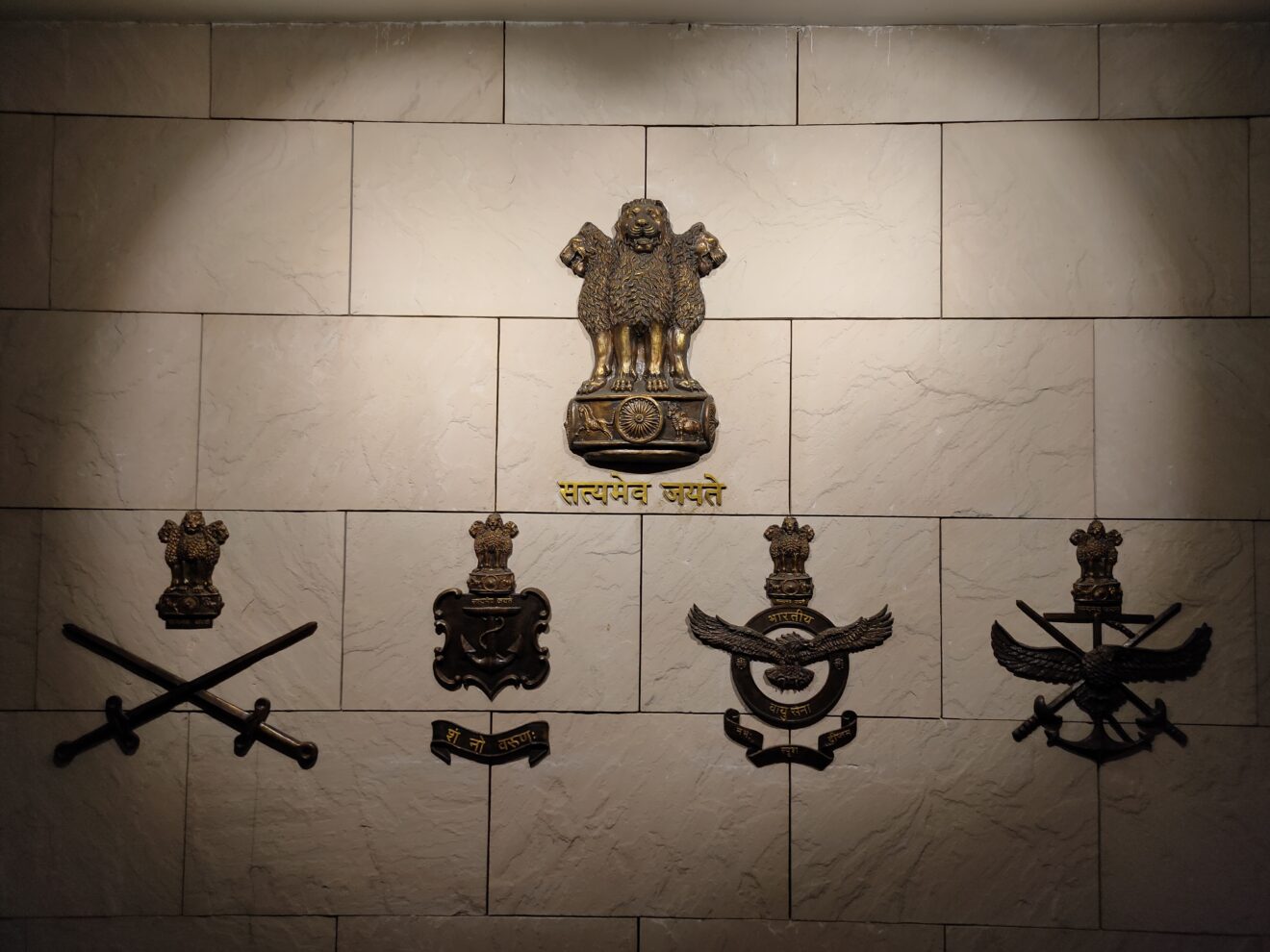By Defence Journalist Sahil
New Delhi | 04 June 2025:
As the global community observes World Environment Day 2025 with renewed urgency under the theme #BeatPlasticPollution, India has once again turned to one of its most disciplined, dedicated, and decisive forces—the Indian Coast Guard (ICG)—to highlight its role as a maritime environmental guardian. The ICG, often seen as India’s shield at sea, has in recent years evolved into a leading green defence force, balancing its duties of national security with profound ecological responsibility.
India’s Maritime Frontline Goes Green: Coastal Defence Meets Environmental Protection
India’s coastline of over 11,000 km, flanked by the Arabian Sea, Bay of Bengal, and the Indian Ocean, is a treasure trove of coral reefs, mangroves, sea grass meadows, estuaries, and turtle nesting beaches. These ecosystems provide more than just scenic beauty—they act as natural barriers against cyclones, nurseries for marine life, and livelihood generators for over 25 crore coastal citizens.
In a time of climate emergency, the Indian Coast Guard has repositioned itself not only as a security force but also as a climate warrior, leading the fight against marine pollution and ecological degradation.
Mega Marine Cleanup Drive: 194+ Tonnes Plastic Removed, 58 Operations, 10 Coastal States
Under campaigns like Swachh Sagar Surakshit Sagar, Puneet Sagar Abhiyan, and Mission LiFE, the ICG mobilized coastal populations, fishing unions, school children, and cadets in a record 58 major coastal clean-up missions across Gujarat, Maharashtra, Kerala, Tamil Nadu, Odisha, Andhra Pradesh, West Bengal, Goa, Lakshadweep, and Andaman-Nicobar.
The result: 194+ tonnes of plastic waste including discarded fishing nets, single-use plastics, and microplastic debris were removed from high-biodiversity coastal belts.
These efforts also led to the restoration of coral patches, turtle nesting beaches, and fishing harbours once choked by synthetic waste. The Coast Guard’s proactive approach is now being studied as a model for sustainable maritime governance in South and Southeast Asia.
Pollution Response Fleet: India’s First Environmental Combat Units at Sea
Three frontline Pollution Control Vessels (PCVs)—ICGS Samudra Prahari, Samudra Paheredar, and Samudra Pavak—form the backbone of India’s maritime environmental emergency response. These vessels are equipped with:
- Oil Skimmers & Dispersant Spray Systems
- Containment Booms & Sub-sea Detection Units
- Hazardous Chemical Recovery Systems
In 2025, these vessels responded to multiple oil spill incidents, including one near Paradip Port, one chemical leakage near Kandla, and a marine lubricant spill off Goa.
Each time, the ICG neutralized threats within Tier-I response time (6 hours), preventing large-scale marine disaster.
NATPOLREX Exercise: India’s Ocean Emergency Drill for 50+ Agencies
The biannual NATPOLREX 2025, coordinated by the ICG, simulated a multi-nodal environmental emergency, involving agencies like:
- Indian Navy, DRDO, ISRO (for satellite mapping)
- State Pollution Control Boards (SPCBs)
- ONGC, Coastline Refineries, Port Trusts
- Disaster Response Forces and Coastal Police
The exercise saw deployment of aerial drones, pollution response containers, and real-time ocean data tracking, reinforcing India’s preparedness for any oil/chemical hazard in the Indian Ocean Region (IOR).
Wildlife Protection Operations: 6.98 Lakh Olive Ridley Turtles Saved
In 2025’s Operation Olivia, the ICG deployed night patrol boats, infrared drones, and ghost net retrieval teams along the Rushikulya, Gahirmatha and Devi river coasts in Odisha, where 6.98 lakh olive ridley turtles arrived to nest.
The ICG:
- Prevented illegal trawler activity in prohibited zones
- Coordinated with forest departments for zero-incident nesting
- Removed abandoned synthetic nets, a major threat to turtle hatchlings
In Andaman & Nicobar, the ICG busted a major marine poaching racket and seized over ₹3.7 crore worth of illegally trafficked sea cucumbers and corals, an operation hailed by the Ministry of Environment.
Citizens as Guardians: Youth Engagement, Behaviour Change, Coastal Literacy
To make marine conservation people-driven, ICG has conducted:
- 103 workshops in coastal schools under Mission LiFE
- 51 awareness rallies in fishing villages on plastic waste reduction
- Seaweed farming & mangrove replantation workshops for fisherwomen
These initiatives have reduced plastic dumping by over 12% in several pilot zones, according to a joint NCSCM-ICG impact report.
A Call to the Nation: Defend the Oceans to Defend the Earth
As India reaffirms its climate goals under SDG 13, 14 & 15, the Indian Coast Guard’s role is pivotal in achieving a Blue Economy that is green and inclusive.
The ICG has urged all citizens:
“Say no to single-use plastics. Join coastal clean-ups. Protect what protects us—the sea.”
The health of our planet begins at the shoreline, and the Indian Coast Guard is leading from the front—a green force in white uniform, securing the nation’s ecological destiny.
विश्व पर्यावरण दिवस 2025 पर समुद्रों के प्रहरी बने भारतीय तटरक्षक बल: पर्यावरण, जैव विविधता और समुद्री सुरक्षा का एकजुट अभियान
नई दिल्ली | 04 जून 2025:
जब पूरी दुनिया #BeatPlasticPollution थीम के तहत विश्व पर्यावरण दिवस 2025 मना रही है, भारत ने अपने एक समर्पित बल—भारतीय तटरक्षक बल (ICG)—की पर्यावरणीय भूमिका को राष्ट्रीय फलक पर उजागर किया है। पारंपरिक रूप से समुद्री सुरक्षा में अग्रणी यह बल अब पर्यावरणीय मोर्चे पर भी “ग्रीन डिफेंडर” के रूप में उभर रहा है।
सुरक्षा और पर्यावरण की नई परिभाषा: समुद्री सीमाएं और पारिस्थितिकीय संतुलन साथ-साथ
भारत का लगभग 11,000 किलोमीटर लंबा समुद्रतट—जिसमें अरब सागर, बंगाल की खाड़ी और हिंद महासागर शामिल हैं—देश की आर्थिक, सामाजिक और पारिस्थितिकीय रीढ़ है। इसमें फैले मैनग्रोव, प्रवाल भित्तियाँ, समुद्री घास क्षेत्र और कछुओं के घोंसले प्राकृतिक आपदाओं से सुरक्षा कवच बनाते हैं और 25 करोड़ से अधिक तटीय लोगों की आजीविका सुनिश्चित करते हैं।
भारतीय तटरक्षक बल ने इसे राष्ट्रीय जलवायु रणनीति के हिस्से के रूप में अपनाया है—जहां सुरक्षा और पर्यावरण दोनों एक साझा कर्तव्य बन गए हैं।
प्लास्टिक मुक्त समुद्र का अभियान: 194 टन कचरा हटाया, 58 से अधिक अभियान, 10 तटीय राज्य
स्वच्छ सागर सुरक्षित सागर, पुनीत सागर अभियान और मिशन लाइफ जैसे अभियानों के अंतर्गत ICG ने देश के 10 तटीय राज्यों—गुजरात, महाराष्ट्र, गोवा, तमिलनाडु, केरल, ओडिशा, आंध्र प्रदेश, पश्चिम बंगाल, लक्षद्वीप और अंडमान-निकोबार—में 58 बड़े सफाई अभियानों का संचालन किया।
इन अभियानों में:
- 194 टन प्लास्टिक वेस्ट जैसे पुराने जाल, बोतलें, सिंगल यूज़ प्लास्टिक आदि हटाए गए
- समुद्रतटों, मछली बंदरगाहों और प्रवाल भित्तियों को साफ किया गया
- हजारों स्कूली छात्रों, मछुआरों और स्थानीय स्वयंसेवकों ने भाग लिया
इन अभियानों ने कई समुद्री क्षेत्रों को पुनर्जीवित किया, जिससे समुद्री प्रजातियों की वापसी देखी गई और तटीय पर्यटन को भी बल मिला।
प्रदूषण नियंत्रण के लिए युद्ध स्तर की तैयारी: तटरक्षक बल की प्रदूषण नियंत्रण पोतें
भारत के पास तीन विशेषीकृत प्रदूषण नियंत्रण पोत (PCVs) हैं—समुद्र प्रहरी, समुद्र पहरेदार और समुद्र पावक—जिनमें निम्न सुविधाएं हैं:
- तेल रिसाव रोकने वाले उपकरण (Oil skimmers, booms)
- वायुवीय और रासायनिक सेंसर
- समुद्र तल से रिसाव निकालने की मशीनें
2025 में इन जहाजों ने कई संकटों का समाधान किया, जैसे कि पारादीप पोर्ट के पास तेल रिसाव, गुजरात के पास रासायनिक रिसाव, और गोवा तट पर लुब्रिकेंट फैलाव।
हर बार, ICG ने 6 घंटे के भीतर नियंत्रण कर दिया, जिससे बड़े स्तर पर पारिस्थितिक क्षति टाली गई।
NATPOLREX अभ्यास: समुद्री आपदा प्रबंधन में 50+ एजेंसियों का समन्वय
प्रत्येक दो वर्ष में होने वाला NATPOLREX 2025 अभ्यास एक बहु-एजेंसी आपदा प्रबंधन अभ्यास है, जिसमें भाग लेते हैं:
- भारतीय नौसेना, ISRO, DRDO, पर्यावरण मंत्रालय
- ONGC, प्रमुख पोर्ट ट्रस्ट, राज्य प्रदूषण नियंत्रण बोर्ड
- एनडीआरएफ, तटीय पुलिस और वैज्ञानिक संस्थान
इस बार अभ्यास में ड्रोन, उपग्रह मैपिंग, और तटीय निगरानी यंत्रों का इस्तेमाल कर तेल/रासायनिक संकटों से निपटने की तैयारी की गई। यह ICG की युद्धस्तर की क्षमता को दर्शाता है।
जैव विविधता की रक्षा: 6.98 लाख ओलिव रिडले कछुओं की सुरक्षा
ऑपरेशन ओलिविया 2025 के अंतर्गत ओडिशा तट पर—गहीरमाथा, रुशिकुल्या और देवी नदी क्षेत्र—में 6.98 लाख से अधिक ओलिव रिडले समुद्री कछुओं के सुरक्षित अंडे देने की निगरानी की गई।
ICG की भूमिका में शामिल था:
- अवैध मछली पकड़ने पर कार्रवाई
- भूत-जाल (Ghost Nets) हटाना
- रात्रि गश्त और ड्रोन निगरानी
इसके अलावा, अंडमान और निकोबार द्वीपों में 3.7 करोड़ रुपये मूल्य के समुद्री खीरे, प्रवाल और शंखों की तस्करी को रोका गया, जिससे समुद्री जैव विविधता को बचाया गया।
समुदाय की भागीदारी: जागरूक नागरिक ही सच्चे समुद्री प्रहरी
ICG ने यह स्पष्ट कर दिया है कि समुद्रों को बचाना केवल सेना का काम नहीं, बल्कि हर नागरिक का कर्तव्य है। इसके लिए:
- 103 स्कूलों में पर्यावरण कार्यशालाएं
- 51 मछुआरा बस्तियों में प्लास्टिक जागरूकता रैलियां
- महिला समूहों के लिए समुद्री घास खेती और मैनग्रोव पुनर्वनीकरण प्रशिक्षण
इन प्रयासों से कई तटीय क्षेत्रों में प्लास्टिक का उपयोग 12% तक घटा है।
आह्वान: समुद्रों की रक्षा, पृथ्वी की रक्षा
भारतीय तटरक्षक बल ने आज देशवासियों से स्पष्ट संदेश दिया है:
“प्लास्टिक कम करें, तटीय सफाई अभियानों में भाग लें और समुद्र के सच्चे रक्षक बनें।“
समुद्र केवल सीमा नहीं, जीवन रेखा हैं।
प्रत्येक गश्त, प्रत्येक अभियान और प्रत्येक रेस्क्यू—हमारे समुद्री भविष्य की नींव है।













Add Comment